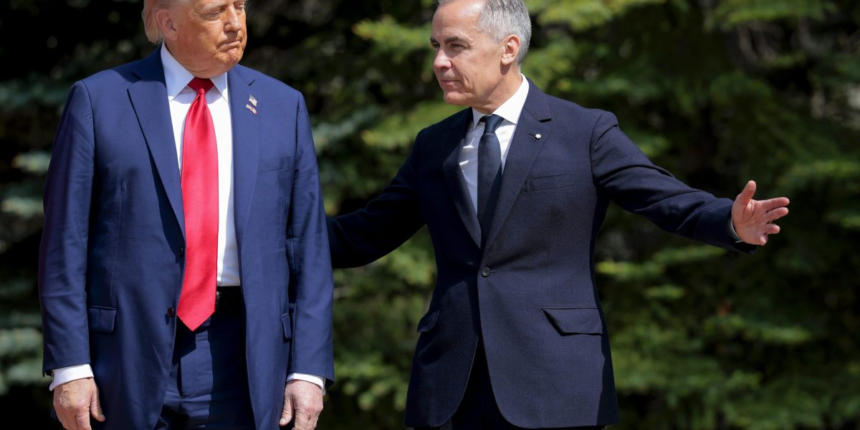Canadian investors have poured $59.9 billion Canadian dollars ($43.3 billion USD) into net purchases of U.S. debt and equities from January to May this year alone, according to data from the National Bank of Canada Financial Markets, the most in this year-to-date period since at least 1990. Meanwhile, net foreign investment in Canadian securities fell by $18 billion CAD ($13 billion USD) in the first five months of the year.
While Canadian stock growth could imply continued investment from Canadians, the magnitude of the U.S. market makes it nearly impossible to resist.
“Canadians continue to invest in the United States because Canada is a relatively small market, and any fully diversified approach to investing requires continued allocations to the U.S. market,” Brett House, a professional practice professor at Columbia Business School and fellow with Canada’s Public Policy Forum, told Fortune.
According to Moshe Lander, a former senior economist for the Government of Alberta and a senior lecturer of economics at Concordia University in Montreal, the desire to invest in U.S. companies despite also wanting to rebuff American companies through boycotts serve separate functions.
“The U.S. boycott is an emotional thing, not an economic thing,” Lander told Fortune. “A lot of Canadians have realized that there’s a limit to how far they’re prepared to voice their objections.”
While refusing to buy consumer products from the U.S. is a way to make Canadians feel empowered through their everyday actions, Lander said the same will to slight U.S. companies doesn’t make as much sense to investors more concerned with the pragmatic places to put their money. There’s another practical reason for continued U.S. stock purchases, according to Lander: Most Canadians don’t manage their own investment portfolios, leaving it instead to financial advisors, who are not making the same emotion-based decisions as boycotters.
“It’s been an effective way for Canadians to show their upset with the great insults that the Trump administration has visited upon both the Canadian government and the Canadian people,” Columbia’s Brett House said.
However, Lander sees the “Buy Canadian” movement dying down as it becomes less sustainable for the Canadian economy. Canada’s annual imports and exports are each worth roughly half a trillion dollars, Lander said. If Canadians were to aggressively commit to a boycott, that $500 billion hit would mean little for the U.S. GDP nearing $30 trillion, but would take a meaningful chunk out of Canada’s $2 trillion economy.
“I don’t know that it’s as much the continued purchase of U.S. equities or bonds as being the anomaly,” Lander said. “It’s more the fact that the boycott of American goods and tourism has actually managed to succeed for seven months.”









